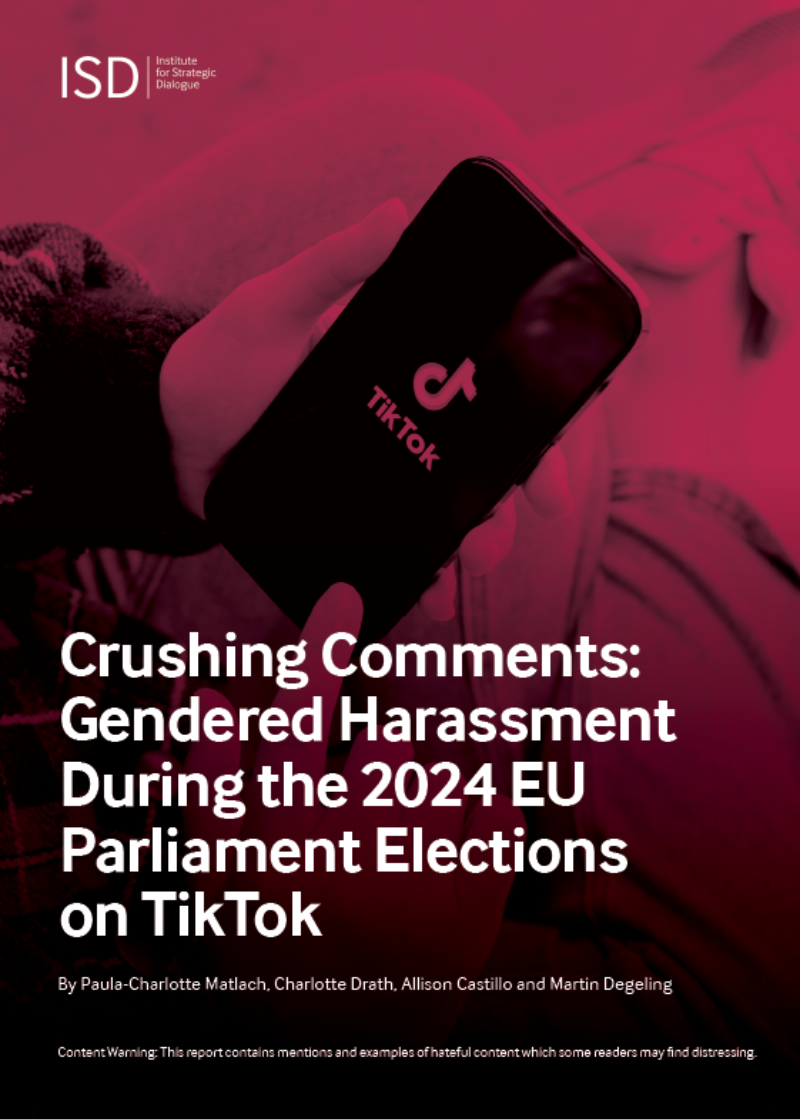Crushing Comments: Gendered Harassment During the 2024 EU Parliament Elections on TikTok

Authors: Paula-Charlotte Matlach, Charlotte Drath, Allison Castillo and Martin Degeling Content
Published: 24 March 2025
In an analysis of comments made under TikTok videos published by French, German and Hungarian candidates for the 2024 European Parliament election, ISD found that women candidates received substantially more hateful, defamatory, and derogatory or discriminatory comments than their male counterparts. This builds on ISD’s previous work which found that women candidates in the 2020 US election were especially at risk from abusive content online.
Harmful comments on TikTok largely followed common misogynistic tropes and tactics. These include disproportionately objectifying and demeaning women candidates regarding their ability, age, appearance, and gender expression or gender identity. One key strategy was the repeated and deliberate misgendering of women candidates perceived as gender nonconforming. Another was to scrutinise their abilities based on gendered double standards.
This disproportionate exposure to harmful speech forces women candidates to expend additional resources to safeguard their physical and mental well-being. This can lead to self-censorship, restricting women’s freedom of expression and their participation in political discourse.
Our findings highlight that the persistence of normalised misogynistic language on social media platforms constitutes a significant systemic barrier to participation in political spaces. The analysis concludes with recommendations for TikTok to enhance its safeguards through a gender-sensitive lens.
This briefing is part of a series examining online gender-based violence (OGBV) on TikTok in English, German, French and Hungarian. It is part of the project Monitoring Online Gender Based Violence Around the European Parliament Election 2024, funded by the German Federal Foreign Office.
